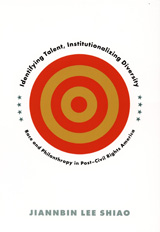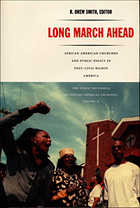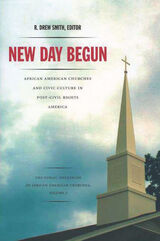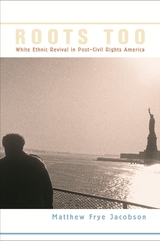
Based on three years of research on the racial and ethnic priorities of the San Francisco Foundation and the Cleveland Foundation, Shiao demonstrates the geographically uneven impact of the national transition to diversification. The demographics of the regions served by the foundations in San Francisco and Cleveland are quite different, and paradoxically, the foundation in Cleveland—which serves an area with substantially fewer immigrants—has had greater institutional opportunities for implementing diversity policies. Shiao connects these regional histories with the national philanthropic field by underscoring the prominent role of the Ford Foundation, the third largest private foundation in the country, in shaping diversity policies. Identifying Talent, Institutionalizing Diversity reveals philanthropic diversity policy as a lens through which to focus on U.S. race relations and the role of the private sector in racial politics.

Long March Ahead emphasizes the need for African American churches to complement the excellent work they do in implementing policies set by others by getting more involved in shaping public policy. The contributors explore the efficacy of different means of public policy advocacy and social service delivery, including faith-based initiatives. At the same time, they draw attention to trends that have constrained political involvement by African American churches: the increased professionalization of policy advocacy and lobbying, the underdevelopment of church organizational structures devoted to policy work, and tensions between religious imperatives and political activism. Long March Ahead takes an important look at the political role of African American churches after the great policy achievements of the civil rights era.
Contributors
Cathy J. Cohen
Megan McLaughlin
Columba Aham Nnorum
Michael Leo Owens
Desiree Pedescleaux
Barbara D. Savage
R. Drew Smith
Emilie Townes
Christopher Winship

This collection of essays analyzes the results of an unprecedented survey of nearly 2,000 African American churches across the country conducted by The Public Influences of African-American Churches Project, which is based at Morehouse College in Atlanta. These essays—by political scientists, theologians, ethicists, and others—draw on the survey findings to analyze the social, historical, and institutional contexts of black church activism and to consider the theological and moral imperatives that have shaped black church approaches to civic life—including black civil religion and womanist and afrocentric critiques. They also look at a host of faith-based initiatives addressing economic development and the provision of social services. New Day Begun presents necessary new interpretations of how black churches have changed—and been changed by—contemporary American political culture.
Contributors. Lewis Baldwin, Allison Calhoun-Brown, David D. Daniels III, Walter Earl Fluker, C.R.D. Halisi, David Howard-Pitney, Michael Leo Owens, Samuel Roberts, David Ryden, Corwin Smidt, R. Drew Smith

In the 1950s, America was seen as a vast melting pot in which white ethnic affiliations were on the wane and a common American identity was the norm. Yet by the 1970s, these white ethnics mobilized around a new version of the epic tale of plucky immigrants making their way in the New World through the sweat of their brow. Although this turn to ethnicity was for many an individual search for familial and psychological identity, Roots Too establishes a broader white social and political consensus arising in response to the political language of the Civil Rights and Black Power movements.
In the wake of the Civil Rights movement, whites sought renewed status in the romance of Old World travails and New World fortunes. Ellis Island replaced Plymouth Rock as the touchstone of American nationalism. The entire culture embraced the myth of the indomitable white ethnics—who they were and where they had come from—in literature, film, theater, art, music, and scholarship. The language and symbols of hardworking, self-reliant, and ultimately triumphant European immigrants have exerted tremendous force on political movements and public policy debates from affirmative action to contemporary immigration.
In order to understand how white primacy in American life survived the withering heat of the Civil Rights movement and multiculturalism, Matthew Frye Jacobson argues for a full exploration of the meaning of the white ethnic revival and the uneasy relationship between inclusion and exclusion that it has engendered in our conceptions of national belonging.
READERS
Browse our collection.
PUBLISHERS
See BiblioVault's publisher services.
STUDENT SERVICES
Files for college accessibility offices.
UChicago Accessibility Resources
home | accessibility | search | about | contact us
BiblioVault ® 2001 - 2024
The University of Chicago Press









